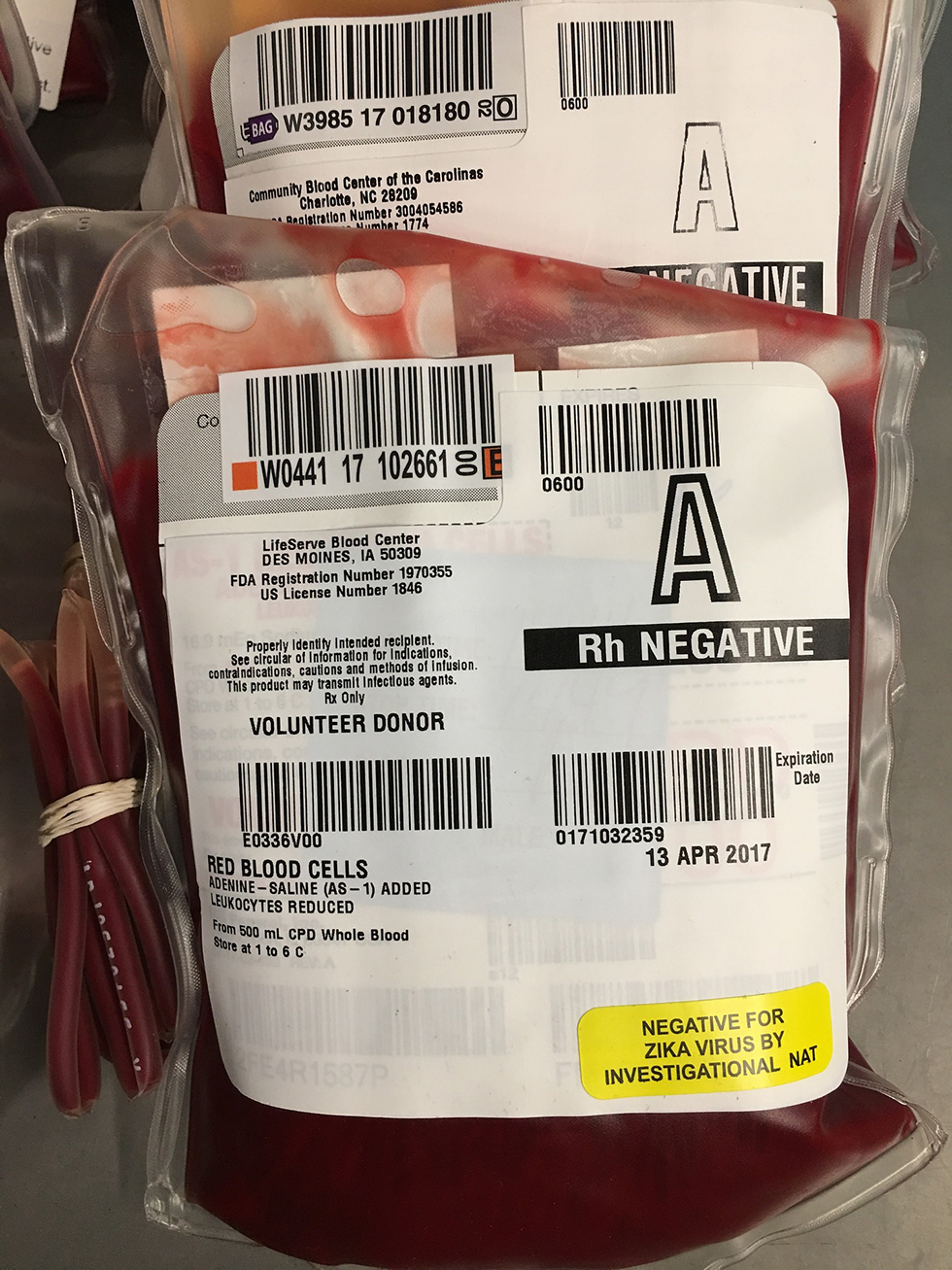
PROVIDENCE, R.I. [Brown University] — Toward the end of life, some leukemia patients depend on blood transfusions to ease their suffering. Unfortunately, the likelihood that transfusions won’t be accessible through hospice care appears to be pose a significant barrier to meaningful use of the Medicare hospice benefit, researchers reported in a new presentation at the American Society of Hematology’s annual meeting in Atlanta on Dec. 9.
Medicare’s hospice benefit provides a flat “per diem” reimbursement for hospice care, which is often not high enough to cover transfusions for leukemia patients. Moreover, few hospices have the capability.
Dr. Adam Olszewski, an assistant professor in the Warren Alpert Medical School of Brown University and physician at Rhode Island Hospital, and Dr. Thomas LeBlanc, an associate professor of medicine at the Duke Cancer Institute, treat patients with blood cancers. They share a mutual frustration that they often can’t connect transfusion-dependent patients with the high quality, home-based palliative care they need.
They decided to study what was happening nationally. Together with Dr. Pamela Egan, a fellow at Brown and Rhode Island Hospital, they analyzed the end-of-life care records of more than 21,000 chronic or acute leukemia patients over age 65 who died between 1996 and 2011.
“We are all working hard trying to make the lives of our patients more meaningful and also help them in the terminal phase of their disease,” Olszewski said.
About 20 percent of the patients were “transfusion dependent,” meaning they had two or more transfusions in the month before they died. Among all the leukemia patients studied, hospice use increased during the period to 49 percent in 2011 from 35 percent in 2001. Hospice use was actually slightly more likely among transfusion-dependent patients than patients who were not transfusion dependent.
But those seemingly encouraging differences can be deceptive, Olszewski and Leblanc said, because hospice use has been increasing generally, and transfusion-dependent patients are in more serious condition, and therefore more likely to be recognized as needing palliative care. The main problem the research uncovered is that the increased rate of enrollment in hospice did not reflect better use of hospice.
“The meaningful use of it is not increasing at all,” Leblanc said. “That’s really concerning.”
Indeed, when the researchers analyzed length of stay in hospice care, they found that after adjusting for potentially confounding factors, transfusion dependence was associated with a 51 percent shorter hospice stay and a 38 percent higher risk of being in hospice care for less than three days. The median stay for a transfusion-dependent patient was six days.
“Markedly shorter time on hospice among transfusion-dependent patients indicates that the need for transfusion support may significantly delay hospice enrollment,” the researchers wrote in their presentation abstract. “Because use of hospice services is associated with lower use of resources and costs at the end of life, allowing palliative transfusions for patients with terminal leukemia may maximize the benefits of hospice from both patients’ and society’s perspective.”
The researchers advocate that Medicare add support in the hospice benefit for transfusions so that the cost does not have to come out of the flat per diem the benefit currently provides.
“That could significantly change the mindset of patients and hematologists who have been expressing concerns about this, and have had an unwillingness to discuss hospice out of fear of bringing up the issue of having to terminate this support, which patients do need,” Olszewski said. “If that creates a significant barrier to enrolling patients in hospice earlier, then this could help.”
Until changes are made, Leblanc said, many patients will continue to have to give up transfusions to get palliative care.
“It’s a pretty awful, unfair choice that we are forcing on people just because there isn’t a policy in place,” Leblanc said.